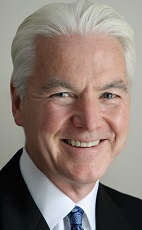
The hotel industry continues to make remarkable progress in implementing sustainability policies and procedures in their properties throughout the world. As a result, they continue to reap the benefits of increased profitability, enhanced guest experiences, and improved community relations in the regions they serve. In addition, as industry standards are codified and adopted worldwide, hotels can now compare how their operations measure up against their competitors in terms of sustainable practices and accomplishments. This capacity to publicly compare and contrast is spurring competition and driving innovation as hotels do not wish to be left behind in this area. Water management and conservation is still a primary issue as population growth, urbanization, pollution and wasteful consumption patterns place increasing demands on freshwater supply. Water recycling; installing low-flow fixtures; using digital sensors to control water usage; and even harvesting rainwater are just a few things that some hotels are doing to preserve this precious resource. Waste management is another major concern. Through policies of reduce, reuse and recycle, some hotels are implementing "zero-waste" programs with the goal of substantially reducing their landfill waste which produces carbon dioxide and methane gases. Other hotels have established comprehensive training programs that reinforce the value of sustainability. These programs explain the need, vision, mission, strategies and benefits for achieving sustainability within the hotel. There is employee engagement through posters and quizzes, and even contests are held to increase innovation, sensitivity and environmental awareness. Some hotels are also monitoring a guest's energy usage and rewarding those who consumed less energy with gifts and incentives. The May issue of the Hotel Business Review will document how some hotels are integrating eco-friendly practices into their operations and how they and the environment are benefiting from them.




 The hotel industry continues to make remarkable progress in implementing sustainability policies and procedures in their properties throughout the world. As a result, they continue to reap the benefits of increased profitability, enhanced guest experiences, and improved community relations in the regions they serve. In addition, as industry standards are codified and adopted worldwide, hotels can now compare how their operations measure up against their competitors in terms of sustainable practices and accomplishments. This capacity to publicly compare and contrast is spurring competition and driving innovation as hotels do not wish to be left behind in this area. Water management and conservation is still a primary issue as population growth, urbanization, pollution and wasteful consumption patterns place increasing demands on freshwater supply. Water recycling; installing low-flow fixtures; using digital sensors to control water usage; and even harvesting rainwater are just a few things that some hotels are doing to preserve this precious resource. Waste management is another major concern. Through policies of reduce, reuse and recycle, some hotels are implementing "zero-waste" programs with the goal of substantially reducing their landfill waste which produces carbon dioxide and methane gases. Other hotels have established comprehensive training programs that reinforce the value of sustainability. These programs explain the need, vision, mission, strategies and benefits for achieving sustainability within the hotel. There is employee engagement through posters and quizzes, and even contests are held to increase innovation, sensitivity and environmental awareness. Some hotels are also monitoring a guest's energy usage and rewarding those who consumed less energy with gifts and incentives. The May issue of the Hotel Business Review will document how some hotels are integrating eco-friendly practices into their operations and how they and the environment are benefiting from them.
The hotel industry continues to make remarkable progress in implementing sustainability policies and procedures in their properties throughout the world. As a result, they continue to reap the benefits of increased profitability, enhanced guest experiences, and improved community relations in the regions they serve. In addition, as industry standards are codified and adopted worldwide, hotels can now compare how their operations measure up against their competitors in terms of sustainable practices and accomplishments. This capacity to publicly compare and contrast is spurring competition and driving innovation as hotels do not wish to be left behind in this area. Water management and conservation is still a primary issue as population growth, urbanization, pollution and wasteful consumption patterns place increasing demands on freshwater supply. Water recycling; installing low-flow fixtures; using digital sensors to control water usage; and even harvesting rainwater are just a few things that some hotels are doing to preserve this precious resource. Waste management is another major concern. Through policies of reduce, reuse and recycle, some hotels are implementing "zero-waste" programs with the goal of substantially reducing their landfill waste which produces carbon dioxide and methane gases. Other hotels have established comprehensive training programs that reinforce the value of sustainability. These programs explain the need, vision, mission, strategies and benefits for achieving sustainability within the hotel. There is employee engagement through posters and quizzes, and even contests are held to increase innovation, sensitivity and environmental awareness. Some hotels are also monitoring a guest's energy usage and rewarding those who consumed less energy with gifts and incentives. The May issue of the Hotel Business Review will document how some hotels are integrating eco-friendly practices into their operations and how they and the environment are benefiting from them.












.jpg?w=70)











.jpg?w=70)

.jpg?w=70)







